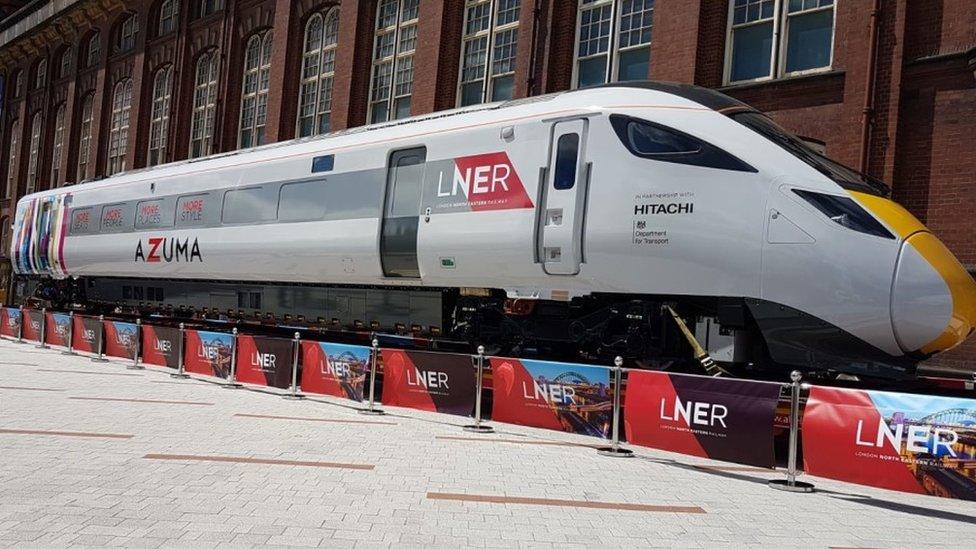Mallard steam locomotive's makes 'rare outing'
- Published
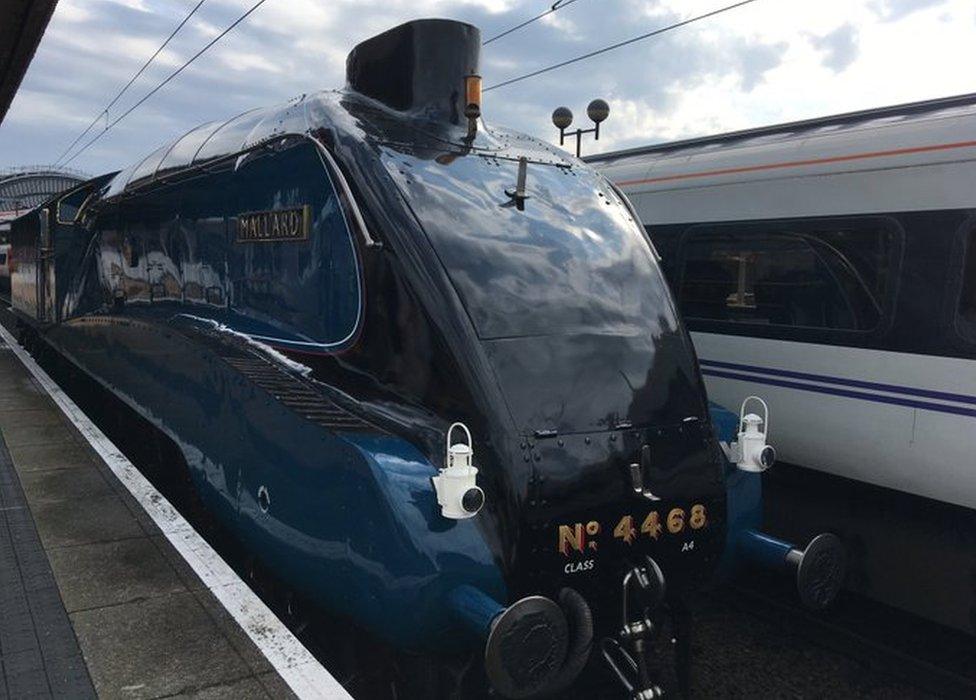
Mallard broke the world speed record for steam in 1938 at 126mph (203km/h) near Grantham, Lincolnshire
The world's fastest steam locomotive has been moved onto the tracks at York station for the first time in 30 years.
Mallard broke the world speed record for steam in 1938 at 126mph (203km/h).
It came out of the National Railway Museum earlier to launch train operator LNER's new Azuma service from York, which starts on Thursday.
The Azuma train left the city at lunchtime and was met in Darlington by Mallard's sister locomotive, Flying Scotsman.
Modelled on the Japanese bullet train, the Azuma runs on the East Coast Main Line service between London and Edinburgh and began operating in May, five months later than planned.
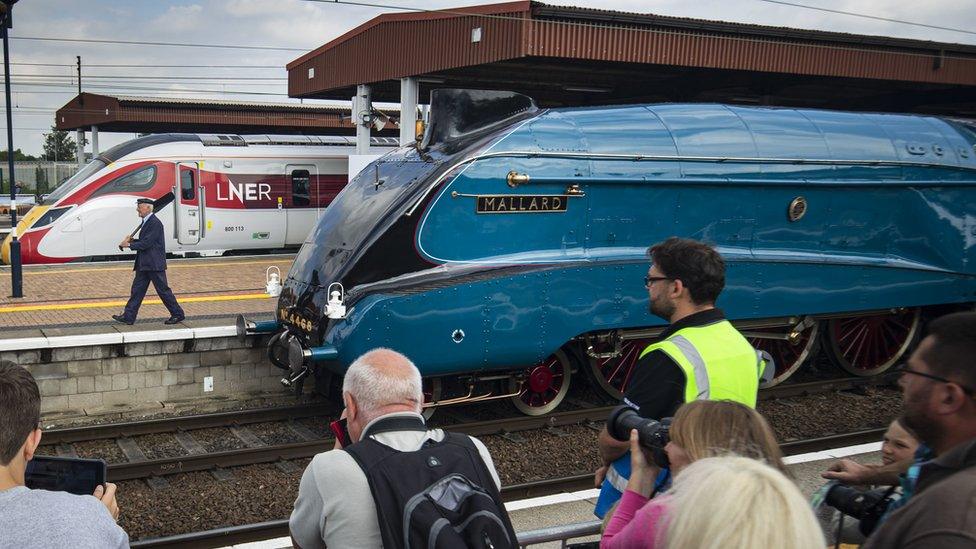
For the first time in 30 years the iconic locomotive, Mallard, was taken out of its exhibition space to stand on the tracks at York station

Steam traction inspector Jim Smith stands on the platform between Mallard and the Azuma train
LNER, the publicly owned operator, described it as a "rare outing".
Director of Communications Kate McFerran said: "LNER is incredibly fortunate to have the history of Sir Nigel Gresley, Flying Scotsman, Mallard and speed records to inspire us as we build a new and exciting future for the business.
"We are working hard to innovate and create new history-making moments, and Azuma is the first bold step towards delivering on that vision," she added.
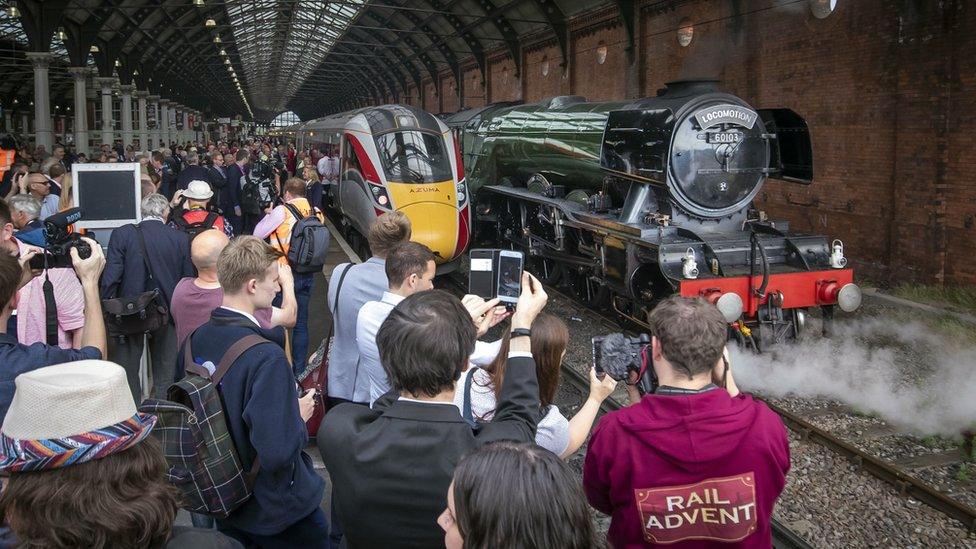
Crowds of people turned out at Darlington train station to see Flying Scotsman stand side by side with the Azuma
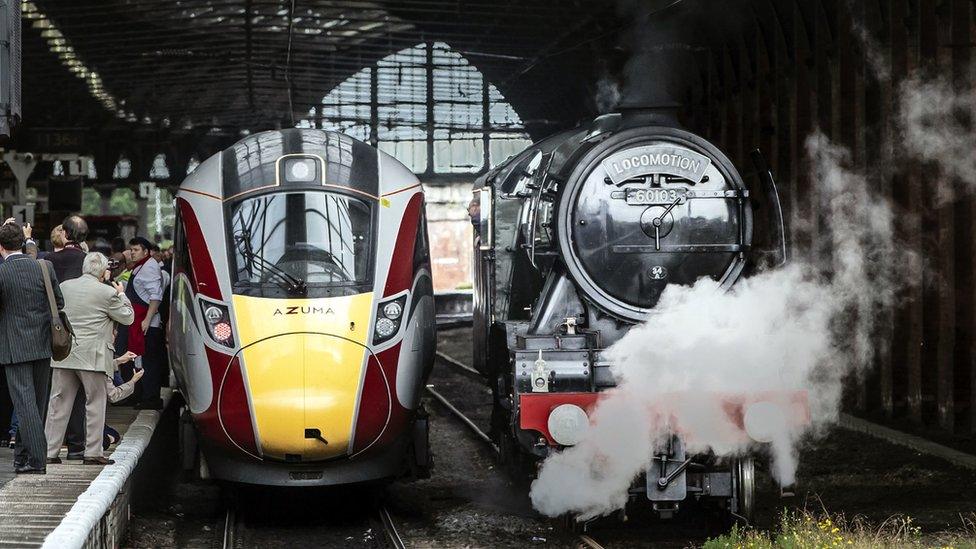
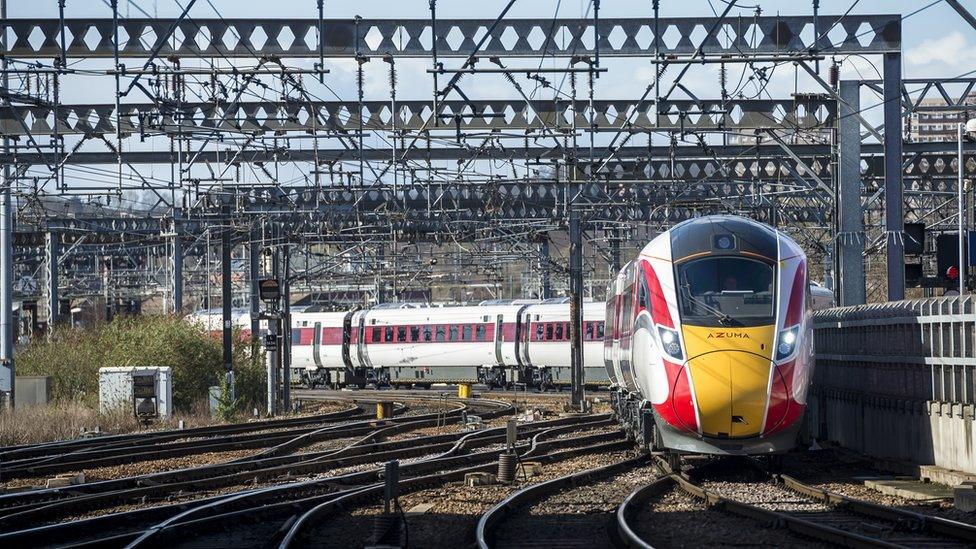
Azuma means "east" in Japanese, according to LNER
Leeds, Wakefield, Doncaster, Peterborough and London were the first stations to be served by the Azuma, which was unveiled earlier this year.
The company had said the introduction of the Azuma would cut journey times and it intended to increase its fleet from 45 to 65 trains by 2020.
- Published14 March 2019
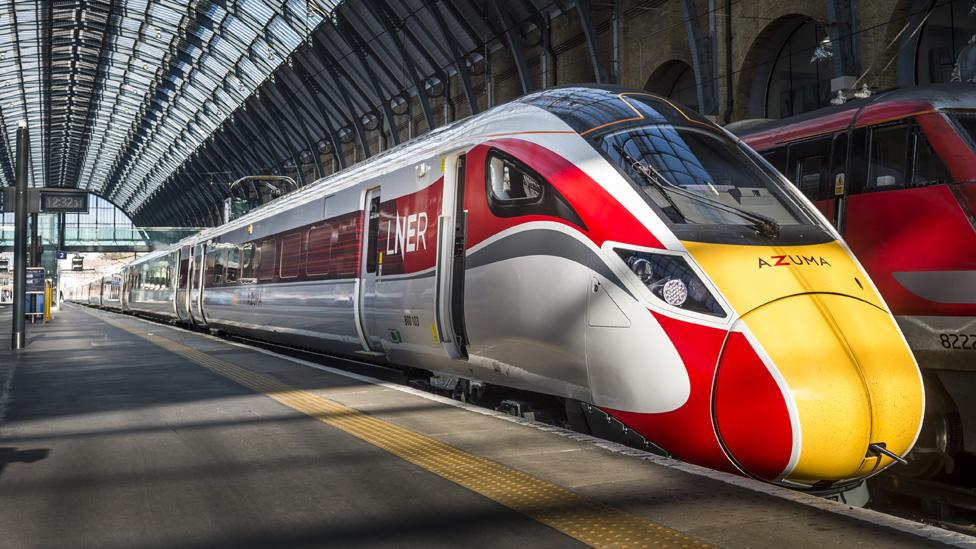
- Published10 September 2018
